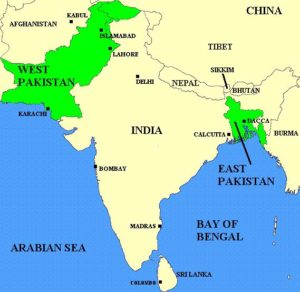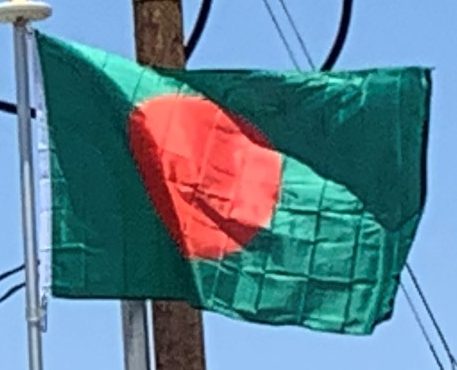According to senior World Bank officials, Pakistan practiced extensive economic discrimination against East Pakistan: greater government spending on West Pakistan, financial transfers from East to West Pakistan, the use of East Pakistan’s foreign-exchange surpluses to finance West Pakistani imports, and refusal by the central government to release funds allocated to East Pakistan because previous spending had been under budget; East Pakistan generated 70 percent of Pakistan’s export revenue with its jute and tea. Sheikh Mujibur Rahman was arrested for treason in the Agartala Conspiracy Case, and was released during the 1969 uprising in East Pakistan which resulted in Ayub Khan’s resignation. General Yahya Khan assumed power, reintroducing martial law.

Ethnic and linguistic discrimination was common in Pakistan’s civil and military services, in which Bengalis were under-represented. Fifteen percent of Pakistani central-government offices were occupied by East Pakistanis, who formed 10 percent of the military. Cultural discrimination also prevailed, making East Pakistan forge a distinct political identity. Pakistan banned Bengali literature and music in state media. A cyclone devastated the coast of East Pakistan in 1970, killing an estimated 500,000 people, and the central government was criticized for its poor response. After the December 1970 elections, calls for the independence of East Bengal became louder; the Bengali-nationalist Awami League won 167 of 169 East Pakistani seats in the National Assembly. The League claimed the right to form a government and develop a new constitution, but was strongly opposed by the Pakistani military and the Pakistan Peoples Party (led by Zulfikar Ali Bhutto).
War of Independence:
The Bengali population was angered when Prime Minister-elect Sheikh Mujibur Rahman was prevented from taking the office. Civil disobedience erupted across East Pakistan, with calls for independence. Mujib addressed a pro-independence rally of nearly 2 million people in Dacca on 7 March 1971, where he said, “This time the struggle is for our freedom. This time the struggle is for our independence.” The flag of Bangladesh was raised for the first time on 23 March, Pakistan’s Republic Day. During the night of 25 March, the Pakistani military junta led by Yahya Khan launched Operation Searchlight (a sustained military assault on East Pakistan). The Pakistan Army arrested Sheikh Mujibur Rahman and flew him away to Karachi. Mujib, however, before his arrest proclaimed the Independence of Bangladesh at midnight on 26 March which led the Bangladesh Liberation War to break out within hours. The Pakistan Army continued to massacre Bengali students, intellectuals, politicians, civil servants and military defectors in the 1971 Bangladesh genocide, while the Mukti Bahini and other Bengali guerrilla forces created strong resistance throughout the country. During the war, an estimated 300,000 to three million people were killed and several million people took shelter in neighboring India. Global public opinion turned against Pakistan as news of the atrocities spread; the Bangladesh movement was supported by prominent political and cultural figures in the West. The Concert for Bangladesh was held at Madison Square Garden in New York City to raise funds for Bangladeshi refugees. The first major benefit concert in history, it was organized by Harrison and Indian Bengali sitarist Ravi Shankar.
